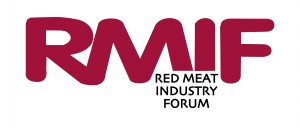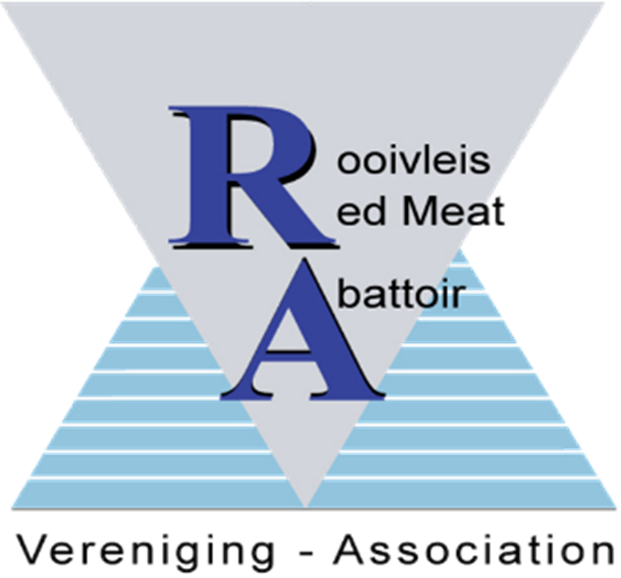RMIF: Red Meat Industry Forum

The Red Meat Industry Forum (RMIF) is a private entity that was established in 1994 when the Agricultural control boards were disbanded. The Red Meat Industry Forum of South Africa represents all the nationally representative role player organisations within the red meat value chain and conducts its affairs according to its constitution.
…maintaining a viable RED meat industry…
Its key purpose is to negotiate for an enabling regulatory environment, to formulate industry policy, to facilitate compliance to legislation, to identify, appoint and monitor service providers and assist in sourcing funding to deliver on the mutually agreed essential functions to maintain a viable red meat industry.
The affairs are managed by a Management Committee of five members nominated by the RMIF Council consisting of all the voluntary member organisations.
Key purpose of the Red Meat Industry Forum:
- To negotiate for an enabling regulatory environment
- To formulate industry policy
- To facilitate compliance to legislation
- To appoint a Compliance Committee
- To address non-compliance to industry related legislation
- To decide on industry strategy
- To guide and monitor progress of strategy
- To apply for statutory levy and measures
- To identify and appoint service providers to deliver functions
- To approve service provider business plans and budgets and allocate funds to service providers
- To appoint a Levy Committee to monitor service provider performance and verify that allocated levy funds have been spent according to budgets and as per annual audits
- To liaise with all industry and state structures
- To nominate industry trustees to the Meat Industry Trusts
- To nominate directors to the Meat Statutory Measure Services Board and
- To nominate representatives to the Red Meat Research and Development structures
Mutually agreed essential functions to maintain a viable red meat industry:
- Compliance to Legislation
- Consumer Assurance
- Consumer Communication and Education
- Industry and International Liaison
- Production Development
- Red Meat Research and Development and
- Transformation in the Developing Sector
Focus areas of the Red Meat Industry:
- Meat safety monitoring
- Independent meat hygiene inspection
- National abattoir hygiene evaluation system
- Residue monitoring
- Voluntary meat classification and marking
- Meat classification coordination
- Utilization of the carcass and innovative product improvement
- Meat labelling
- Meat import product verification and monitoring
- Compliance to legislation
- Voluntary and compulsory standards for meat and meat products
- Good management practices
- Livestock health and international livestock health rating
- Individual livestock identification, movement control and traceability
- Bio-security, sanitary and phyto-sanitary measures
- International trade affecting the red meat industry
- Development, training and mentorship to ensure a sustainable red meat industry
- Transformation, mentorship and commercial integration of the developing sector
- Consumer education emphasizing nutritional and health attributes of safe red meat which is produced in a sustainable manner
- Consumer education emphasizing the benefits of leather
- Re-entrenching the butcher as final custodian of red meat products
- Animal welfare
- Research and development and
- Information gathering and dissemination
Historical Funding
The red meat industry determined a need for the continuation of a number of essential functions previously executed by the now disbanded Meat Board. In the period following 1994 certain of these functions were executed by the South African Meat Industry Company funded by the Meat Industry Trust and then later some of the major industry role player organizations agreed to fund these functions on a Rand to Rand basis with the Meat Industry Trust as the Trust’s capital base was being eroded. This funding method was an interim measure and not sustainable in the long run.
Statutory Levies and Measures
In March 2005 the Red Meat Industry Forum (RMIF) submitted an application for the introduction of a Proportional Transaction statutory levy in terms of the Marketing of Agricultural Products Act, 1996 (Act Nr. 47 of 1996) (the MAP Act). In order to enhance the efficiency of levy administration and information collection, two ancillary statutory measures, namely registration and information collection, and the keeping and rendering of records and returns were also requested. The levy and measures are applicable within the boundaries of the Republic of South African and to red meat, red meat products (excluding hides and skins), processed pork imported into South Africa and live livestock exported from South Africa.
The Act No.71 of 2008 were published on 5 August 2005 and came into effect on 5 November 2005 for a 2 year period. Industry raised certain queries to gain clarity and as a result submitted an application to amend the levy notices. The amended notices were published on 12 January 2007.
A similar levy application was submitted in June 2007 for a Proportional Transaction statutory levy for a 3 year period and the levy notices were published on 29 October 2007 to announce the second levy period ending on 4 November 2010.
The mutually agreed essential industry functions have been funded by a statutory levy collected and managed on behalf of the red meat industry by the Meat Statutory Measure Services. During the latter part of 2008 the RMIF reviewed the functions and re-allocated the funding towards the essential functions.
The third levy period application was submitted in the beginning of June 2010 for a 4 year period. The levy notices were published on 11 November 2010 and the current levy period expires on 4 November 2014.
The RMIF submitted a new application to the National Agricultural Marketing Council (NAMC) on 24 April 2014 applying for another Proportional Transaction statutory levy for a 4 year period and in response the NAMC published the application for the continuation of statutory levies for the red meat industry as Notice 362 of 2014 in the Government Gazette on 23 May 2014. The NAMC requested directly affected parties to submit comments on or before 6 June 2014.
Meat Statutory Measure Services
Meat Statutory Measure Services (MSMS) is an organization incorporated under section 21 of the Companies Act, 2008 (Act No.71 of 2008) and was established on 16 August 2007 to manage the administration and enforcement of the red meat Levy Notices. The affairs are managed by a Board of Directors of 5 members elected by the 12 nationally representative role-player organizations of the RMIF. The key purpose of MSMS is to serve, protect and promote the interests of all designated levy payers and the nationally representative role-player organizations of the RMIF to maintain a viable red meat industry.
The MSMS contracted a private company, Red Meat Levy Administration (Pty) Ltd. (RMLA) to execute the administrative component entailed in the above functions.
It is the responsibility of MSMS to contract the Levy Administrator, to enforce compliance to the levy and other relevant legislation, to appoint auditors and to address industry non-compliance to legislative matters.
Board of Directors
The MSMS Directors are:
- Daniel Pieter Elardus Van Zyl
- Timothy George Davidson
- Georg Frederick Southey
- Mculami Mahanjana
- David Porter Ford
Levy Administrator
In order to ensure the cost effective, transparent and correct application of levy funding, the MSMS appointed Red Meat Levy Administration (Pty) Ltd. (RMLA) to oversee the collection and administration of the levy process. Industry service providers were appointed by the RMIF on submission of approved business plans and budgets each to execute one or more of the mutually agreed essential functions.
It is the responsibility of RMLA to receive and administer agreed upon budgets from the RMIF, to register all levy payers, to collect levies according to levy notices, to report and act against delinquent levy payers according to the relevant articles of the MAP Act as amended, to receive instructions from MSMS, to keep accurate financial statements, to submit audited annual financial statements to the Auditor General, to administer a centralised information system, to apply an optimum cash flow management system; and RMLA is authorized to outsource one or more of its obligations to one or more service providers on the condition that such service provider(s) shall at all times act as agent(s) of RMLA and be accountable directly to RMLA.
RMLA has contracted the SAMIC coordinators appointed by the Minister of Agriculture, Forestry and Fisheries as levy inspectors to assist in enforcing the levy collection at certain collection points.
Levy Imposition Mechanism
It has been requested that a levy be imposed on each category of the designated livestock and red meat products as follows:
Cattle
(i) R4.26 per head deducted and retained from the selling price of each animal by any buyer of such animal. In the event of an animal not reaching the place of slaughter the levy shall be payable by the buyer to the Levy Administrator;
(ii) R7.10 per head payable by the owner at slaughter, to the abattoir who slaughters such animal, the abattoir shall be liable to collect such levy from the owner and pay it over to the Levy Administrator;
(iii) R450 per year payable by each meat trader outlet to the Levy Administrator;
(iv) R792 per container or consignment of red meat or red meat products imported is payable by the importer to the Levy Administrator prior to issuing of an import permit. The levy receipt number is submitted with the import permit application to the issuing officer;
(v) R7.10 per head exported live is payable by the exporter to the Levy Administrator;
(vi) 0.07% of the commission earned by the livestock agent is payable by the livestock agent to the Levy Administrator;
(vii) 1.37c per kg for every processed hide locally produced is payable by the processor to the Levy Administrator. 1.37c per kg will also be collected for every unprocessed hide exported payable by the exporter to the Levy Administrator.
Sheep and Goats
(i) R0.91 per head deducted and retained from the selling price of each animal by any buyer of such animal. In the event of an animal not reaching the place of slaughter the levy shall be payable by the buyer to the Levy Administrator;
(ii) R1.38 per head payable by the owner at slaughter, to the abattoir who slaughters such animal, the abattoir shall be liable to collect such levy from the owner and pay it over to the Levy Administrator;
(iii) R450 per year payable by each meat trader outlet to the Levy Administrator;
(iv) R792 per container or consignment of red meat or red meat products imported is payable by the importer to the Levy Administrator prior to issuing of an import permit. The levy receipt number is submitted with the import permit application to the issuing officer;
(v) R1.38 per head exported live is payable by the exporter to the Levy Administrator;
(vi) 0.07% of the commission earned by the livestock agent is payable by the livestock agent to the Levy Administrator;
(vii) 1.37c per kg for every processed skin locally produced is payable by the processor to the Levy Administrator. 1.37c per kg will also be collected for every unprocessed skin exported payable by the exporter to the Levy Administrator.
Processors
1.37c per kg of red meat, red meat products and processed pork purchased by registered processors for processing is payable to the Levy Administrator.
Notes:
- The R450 per year payable by each meat trader outlet relates to each outlet per se, and is not applicable per meat trader outlet per specie; and
- A 3 % collection fee can be deducted from the collected levies by the abattoir before the levies are paid over to the Levy Administrator.
Third Levy Period
Levy Notices and supporting Service Provider Business Plans and Budgets
Physical Address
Red Meat Industry Forum
Ground Floor ERA Building
347 Church Avenue
c/o Atterbury and Lynnwood Avenues
Lynnwood
Gauteng
South Africa
0081
Postal Address
P O Box 36802
Menlo Park
Gauteng
South Africa
0120
Tel: +27 (79) 162 6465
Email: [email protected]
